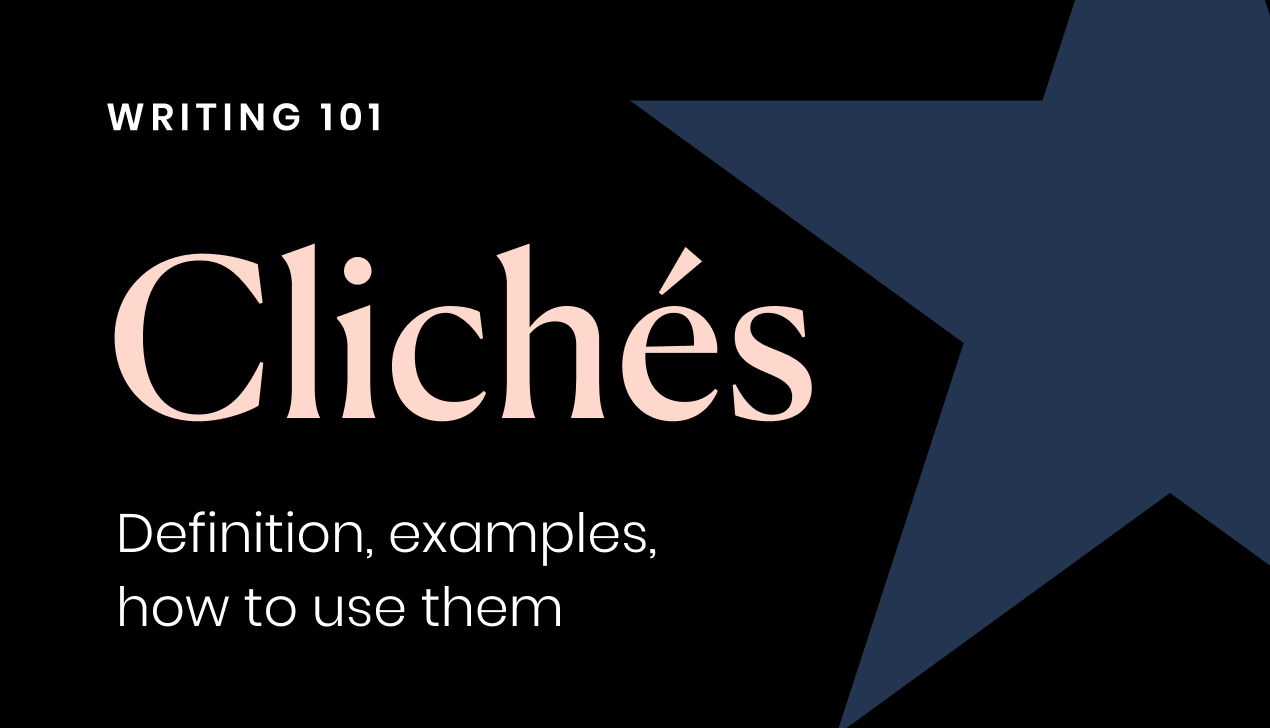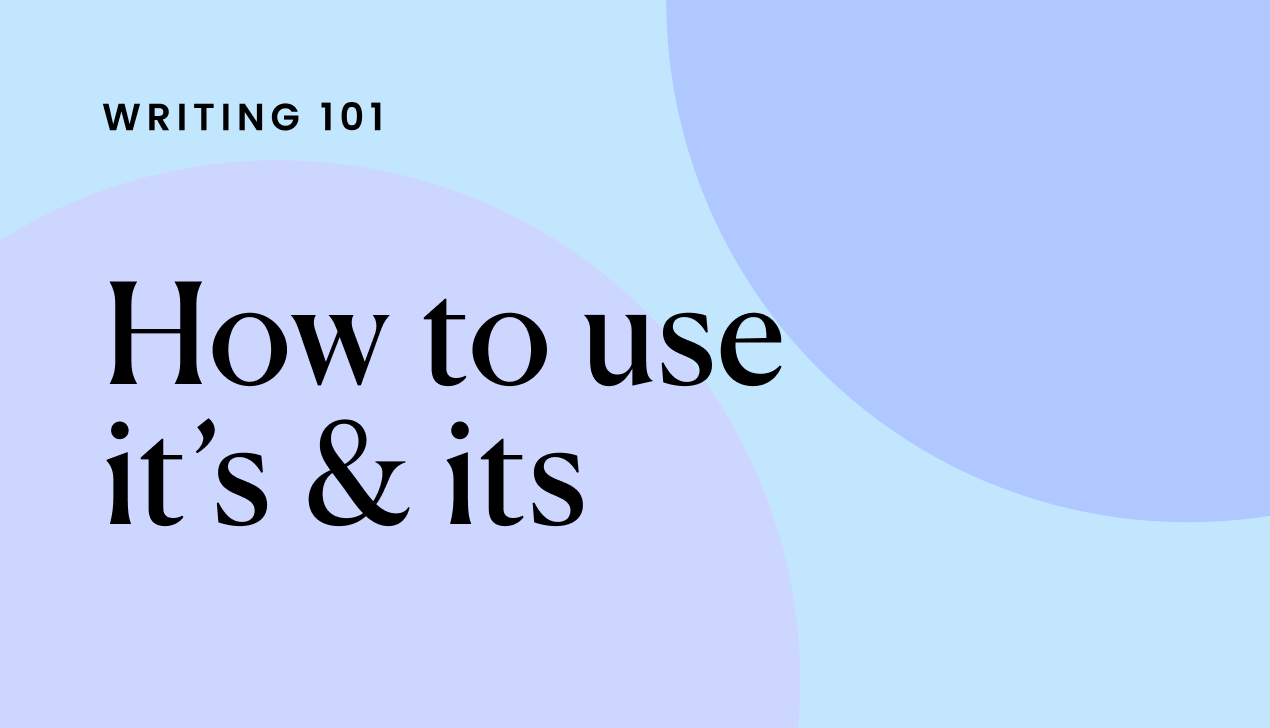Words at work
– 4 min read
Prepositional phrases: what they are and examples
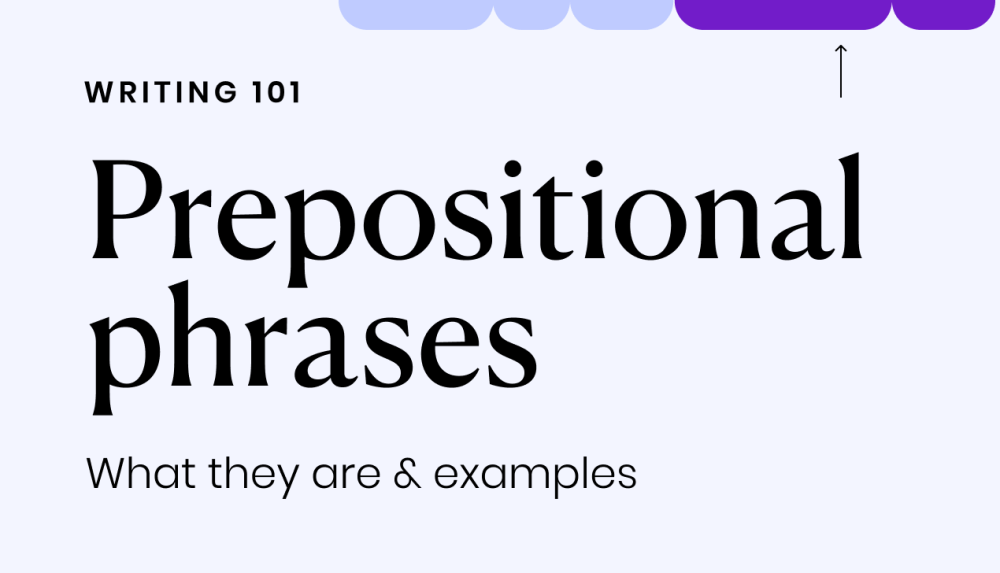
What’s a preposition? What’s the difference between prepositions and prepositional phrases? And, how do you know when to use one?
In this post, we’ll cover the basics that you need to know about them, what they are, and some practical examples.
What is a prepositional phrase?
Before we can define what a prepositional phrase is, you should know what a preposition is. The purpose is to tell where or when something is in relation to another.
A preposition is a word governing a noun or pronoun. A preposition can be used with a noun, pronoun, infinitive, or gerund.
Prepositions are pretty versatile. They can indicate time, location, spatial relationships, direction, and other abstract relationships.
Here are examples of these different types of prepositions:
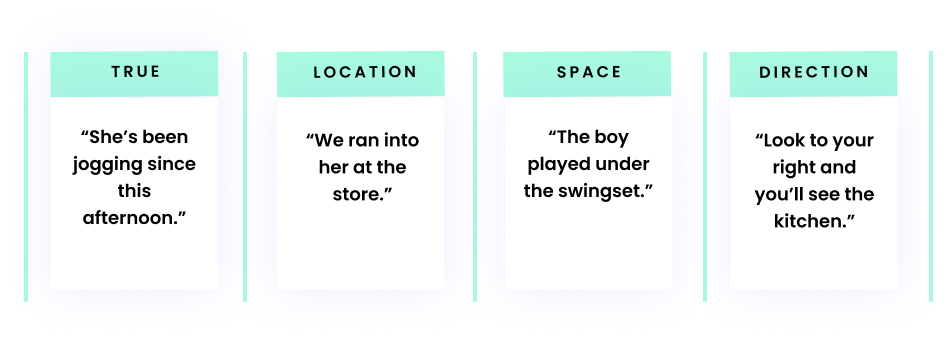
Now that you know what a preposition is, we can dive into what makes up a prepositional phrase. A prepositional phrase is simply a group of words that consists of a preposition and the object of the preposition. It can also include words that modify the object. Normally, the modifier will be a noun or the infinitive or gerund form of the linking verb.
There are several different types of prepositional phrases that you should be aware of. We’ll cover these in the next section.
List of prepositional phrases to use
Here’s a list of prepositions for you to use with your prepositional phrases. These are common and refer to placement or movement:
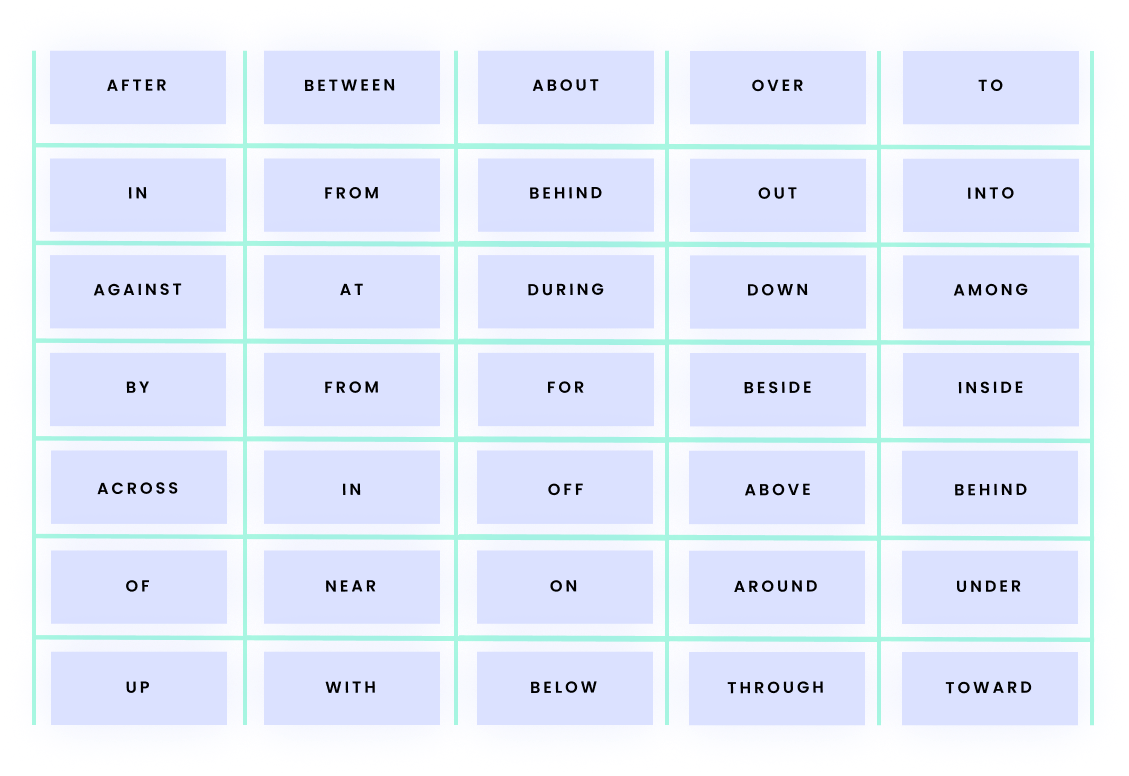
These prepositions are less common, but can still be used in prepositional phrases:
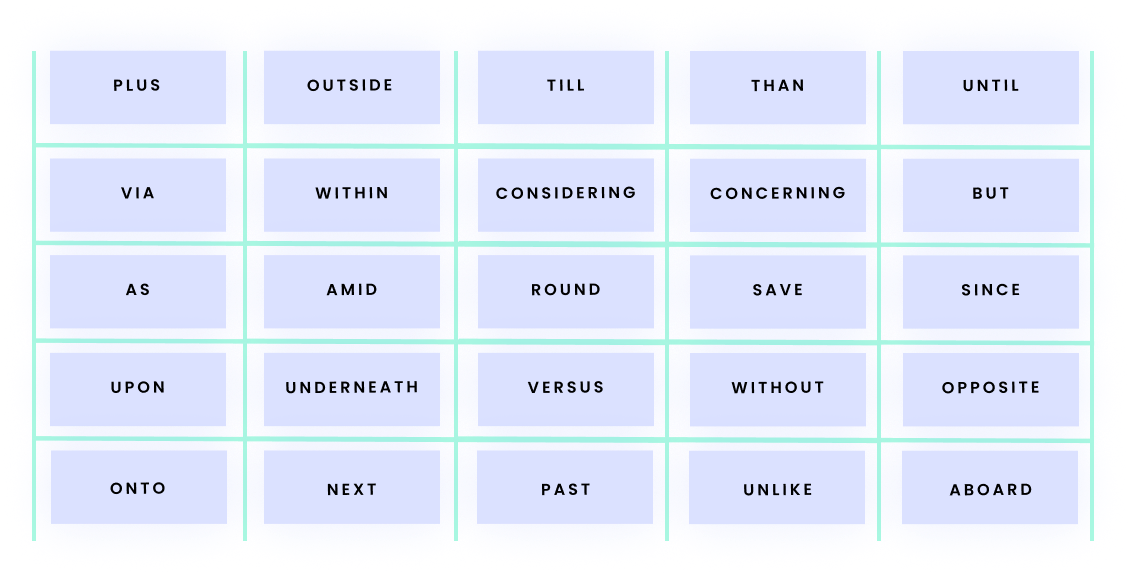
It’s important to keep in mind that the words in the list above have the potential to become a part of a prepositional phrase. They often won’t act as prepositions. Sometimes these words act as adverbs or something else instead. It’s all about context.
Remember that prepositions are always in prepositional phrases. If you see one of the above words in a prepositional phrase, then it’s likely a preposition.
Types of prepositional phrases
There are two primary types of prepositional phrases. The first is an adverbial phrase and the second is an adjectival phrase. Here’s how to tell the two apart.
Adverb prepositional phrases
An adverbial or adverb prepositional phrase is a prepositional phrase that modifies a verb. When the phrase acts on the verb, it’s considered to be acting adverbially because adverbs modify verbs.
Here are two examples of adverb prepositional phrases:
Example 1: “The dog jumped up with excitement.”
This sentence answers the question, “Jumped how?”
Example 2: “To find the professor that teaches chemistry, check in the cafeteria.”
This sentence answers the question, “Look where?”
Adjective prepositional phrases
An adjectival or adjective prepositional phrase is a prepositional phrase that modifies a noun. When a prepositional phrase behaves adjectively it’s considered to be an adjectival phrase.
Here are two examples of adjective prepositional phrases:
Example 1: “The painting on the end is the best.”
This sentence answers the question of which painting the writer believes is the best.
Example 2: “Taylor wants to stop at the restaurant by the mall.”
This sentence tells us what restaurant Taylor wants to stop at.
Prepositional phrases behaving as nouns
Aside from adverb and adjective prepositional phrases, some prepositional phrases can act as nouns. This doesn’t occur very often, but it’s still something you should be aware of.
Here are some examples of prepositional phrases acting as nouns:
Example 1: “Before the show will be too early for us to go to lunch.”
Example 2: “During the intermission is the ideal time to talk to your friends.”
Common prepositional phrase mistakes
No matter what type of prepositional phrase you use, there are a few common mistakes writers make that you should be aware of.
Here are three commonly made mistakes to avoid when using prepositional phrases in your writing:
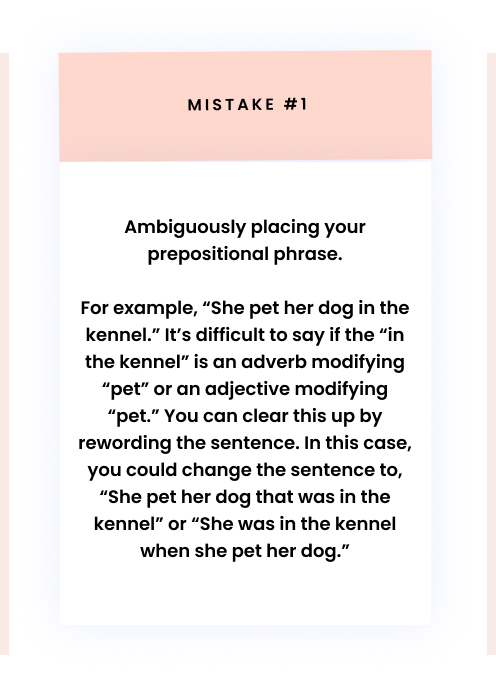
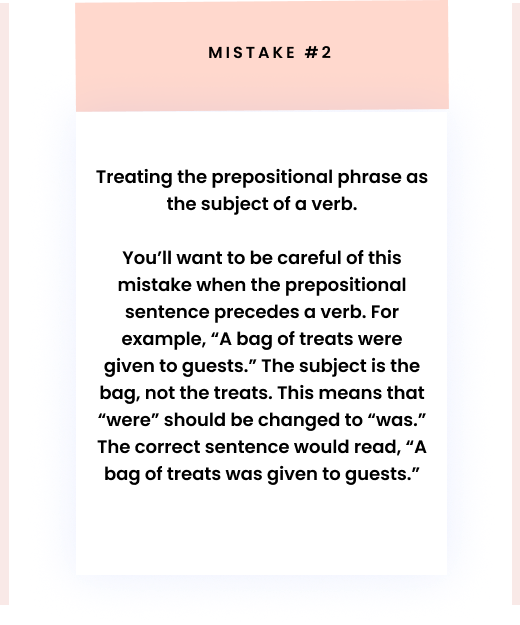
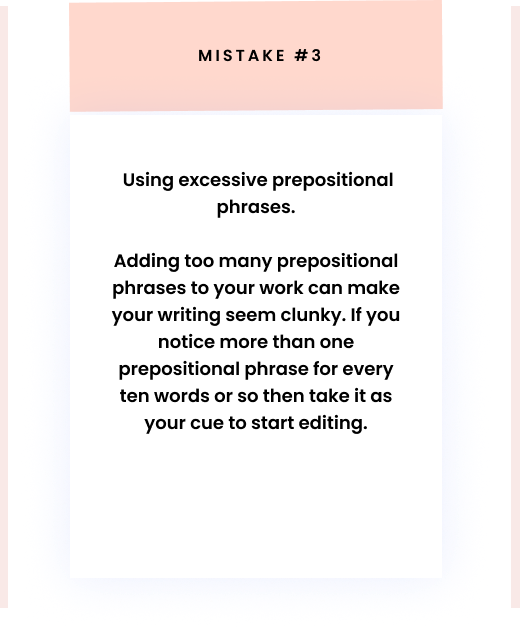
***
Prepositional phrases may seem tricky at first, but they just take a bit of practice to identify. Look for common prepositions like the ones mentioned above. Be sure to avoid the common pitfalls like treating the prepositional phrase as the subject of the verb. The more you practice, the more prepositions and prepositional phrases will become second nature.


